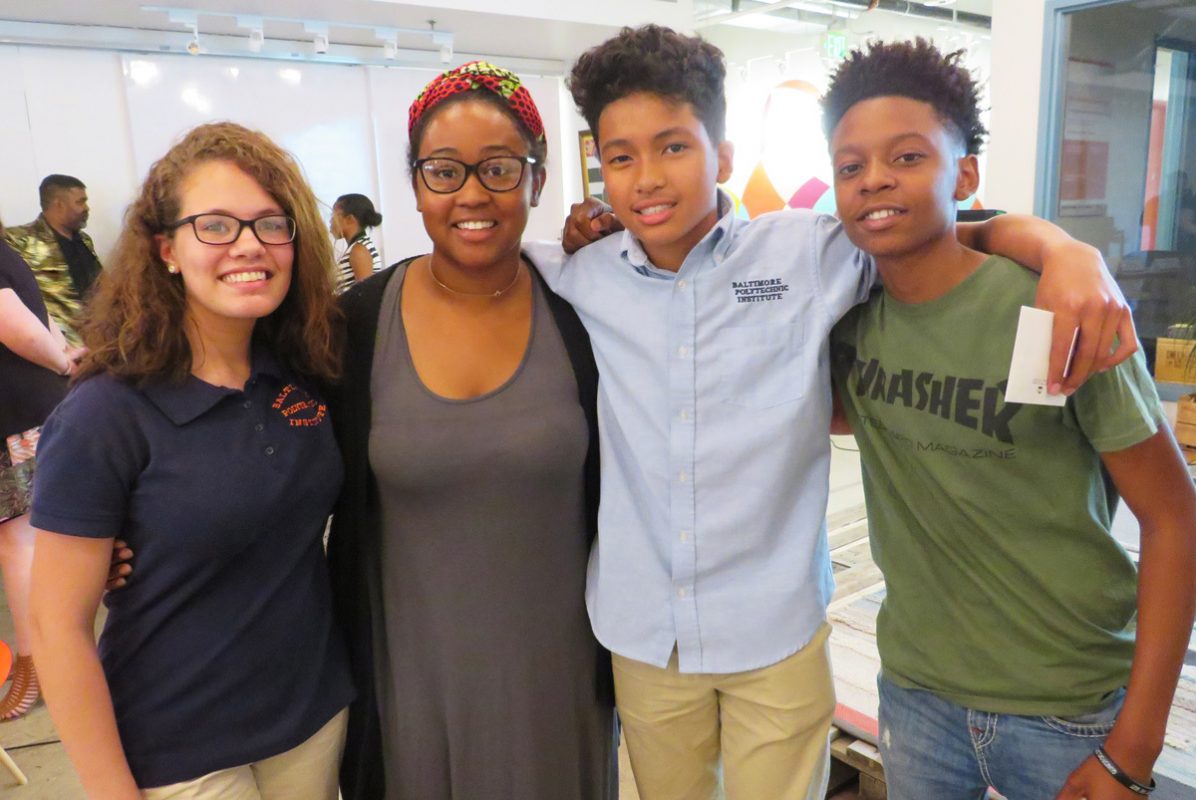
Code in the Schools and the Department of General Services (DGS) have teamed up to create a technology career pipeline program for Baltimore City students. During the pilot of this new program, six high school students built foundational computer science skills in Python—a computer coding language—through courses at Code in the Schools and used these skills to work with DGS on real challenges.
Code in the Schools is a nonprofit that is trying to fill the gap in computer science and computation education in public schools. By providing in-school, after-school, and summer programs, youth are exposed to key concepts, skills, and capabilities that build paths from school to higher education and jobs. The students participating in the program were initially part of the Prodigy Program—an after-school course for high school students.
“The original intent of the Prodigy Program was to give technical training to the kids and get them internships,” Gretchen Legrand, executive director of Code in the Schools. “What we found is that it’s difficult to get companies on board to take high school interns. It’s definitely a goal of the program to get students real-world experiences and it’s great to have a partner like DGS who is willing to take a high school student.”
DGS is a government agency that is responsible for maintaining public buildings in the city. Babila Lima, manager at DGS, says that more than half of their workforce is retirement ready or retirement eligible and the pool of candidates who are qualified to do the level of coding required is very slim. He says this was part of the impetus for the program and the partnership with Code in the Schools.
“As jobs change we need to prepare a pipeline for people who see government work as sexy and want to do the jobs and has the skill set to do the new type of work,” Lima said. “We need people who are not just computer literate but can code.”
The students who were up for the challenge—Darien Brown, A Tyriqe Thomas, Ana Basoco, Wayne Nelms Jr., Marcus Gatewood, and Sidney Mitchell—were given their choice of two DGS projects to work on during the five-month program. The first was to create script that would aggregate the number of maintenance work orders completed in a month for DGS. The second project involved writing code to create a Twitter bot that will automatically calculate and tweet messages about the facilities’ maintenance efficiency on relevant holidays like “National Light Bulb Day.”
Last night, at the Impact Hub in front of a panel of tech experts from companies like Under Armour, University of Maryland Baltimore, and Baltimore City’s IT Office, the students presented their code-based solutions to the DGS projects. Basoco, a Baltimore Polytechnic freshman who was awarded an internship at the end of the event, enjoyed the experience and is happy that she’s able to put her favorite hobby to practical use.
“I’m really looking forward to the internship,” she said. “I tried to teach myself over the summers and bought books and signed up for computer science classes in school. I don’t know what part of the computer science field that I want to pursue yet, but I want to see how far I can get.”
The “very sharp and extremely inquisitive” Basoco, according to Lima, will begin her internship with DGS once school lets out. There will be no coffee runs or pointless errands with this job. Basoco will be working on real projects that will help to improve the functionality of the agency.
“What we’re trying to do is create a talent pipeline for high school students to get them interested in coding and government work and see that it’s not your granddad’s government,” Lima said. “We have a space for them to incubate and get interested at that level. So, by the time they go to college, they have real practical experience.”
